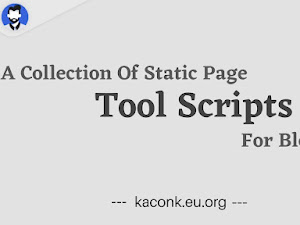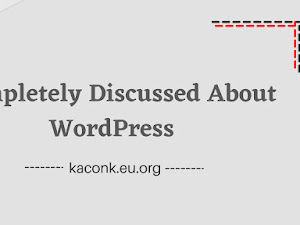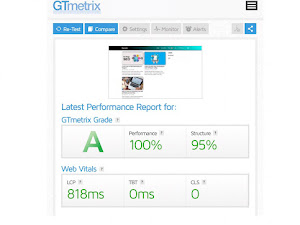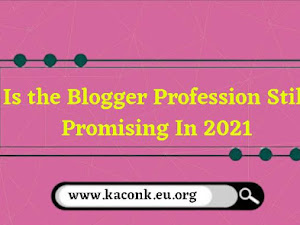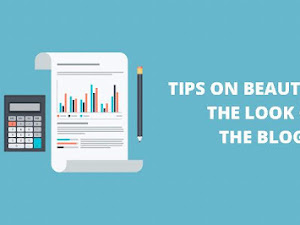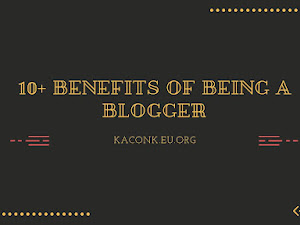What is ON PAGE SEO? Understanding, Benefits, and Ways of Optimizing
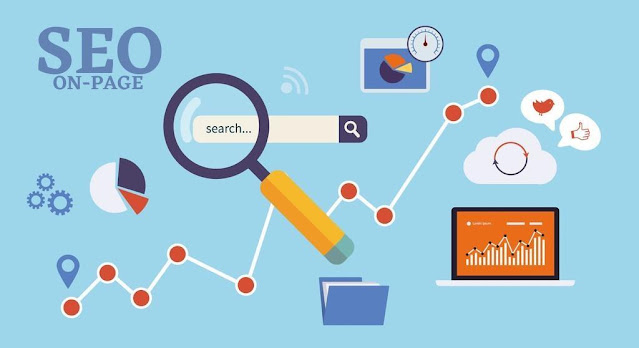 |
| kaconk.eu.org |
What is on page SEO?
On page SEO or also referred to as "On-site SEO" is the practice of maximizing websites to achieve higher rankings and gain organic traffic in Google's search engine.
In addition to publishing important, high-quality content, on page SEO includes optimization of title tags, content, internal links, URLs, and images. It is also useful that the website has a high level of proficiency, authority, and trust.
Those who are new to On Page SEO are highly recommended to read the OnPage ranking factor. On page SEO has changed over the years, so it's important to keep up with the latest practices.
Why is on page SEO important?
On page SEO is very important because it helps search engines understand your website and its content and whether it is relevant to the search query. As search engines become more sophisticated, there is a greater focus on relevance and semantics in search engine results pages (SERPs).
SEO page optimization should always be a priority. Off page SEO won't bring much benefit if you don't look at the basics of on page SEO first. Relevance is a big part of on page SEO to rank higher on Google.
How to optimize on page SEO
Now that you understand why on page SEO is so important, it's time to start optimizing your content and website. There are several ways to optimize page SEO, including:
1. Quality Content
People use Google search to find quality content. Google search must understand the content before it can be displayed to users.
Can that information be trusted?
Is the author of the article an expert with a unique perspective?
Is the content original with original analysis?
Is the content duplicated or created automatically?
Is the quality and style of writing unique, valuable and interesting?
Experience, Authority and Trustworthiness (EAT) is a framework used by Google evaluators to assess content, web pages, and website builders in totality.
Google always prioritizes the quality of content. You need to choose that sites that produce high quality content get higher rankings and sites that produce poor quality content get lower visibility. This means EAT should be considered in your SEO strategy.
2. Create an Interesting Title
When a user searches for information on Google, the title and description of the content or web or so-called Search Engine Results Page (SERP) appears in the search results. People who are interested in reading content or visiting your website.
In addition, the title also helps Google to understand the content or pages of a web.
An HTML title tag that sits at the top of each web page and provides initial clues or context about the topic of each page. The majority of CMS (such as WordPress) automatically insert the H1 tag into the title of your blog article.
This is clearly visible on search engine results pages (commonly used as clickable links) and in browser windows.
Missing title tags, duplicates, or misspellings can negatively impact SEO results, so be sure to optimize these items.
Create seo-friendly titles and descriptions.
3. Meta description
A meta description is a meta tag that provides a description of the content on a page and is often displayed in the SERP under the page title. Meta descriptions become an important point of optimization for SEO.
Optimization of the right meta description can help improve:
~ Click-through rate (CTR).
~ Perception of the quality of results.
~ Perception of what your website has to offer.
4. Heading and Subheading
A title tag is an HTML element (H1~H6) used to distinguish headings and subtitles in your content from other types of text (paragraph text).
Header tag
It is no longer as important to your website's ranking as it used to be, but it still has important functions for your users and SEO.
You can indirectly affect your ranking by:
~Make your content easier and more fun for visitors to read.
Providing search engines with keyword-rich context for your content.
5. SEO Copywriting
SEO Copywriting means writing content with search engines and users in mind.
There's a strategy behind writing solid SEO content, and it's more than just doing keyword research and filling in the blanks.
Producing content for this purpose only will not work. Remember, you're writing content for people, so the content should be high quality, important, and relevant.
6. Image Optimization
Incorporating images is a friendly variety to build your website more amazing. But not all images are created equal, even some can slow down your website.
Maximizing images properly will support you maximize useful SEO assets.
Image optimization has many functions, such as Add-on sorting options (appear in Google image search). A better user experience. And be sure to add images that concern your content, using descriptive titles and alternative text.
• Read More: How to make website load faster effective and very easy
7. Content Audit
Some content creators are so focused on creating new content that they forget to control existing content. And that was a mistake.
Controlling existing content is very important because it will support you:
Compare whether existing content has reached your goals and generated ROI. Determine if the reports in your content are still true or outdated (or likely outdated).
Determine the type of content that is accurate to you. Content auditing can be so helpful to your SEO strategy and should be done consistently.
Conclusion
On page SEO is important if you want to increase the chances of your website appearing in search results.
Regular optimization factors on your website can help improve your rankings, traffic, and conversions.

